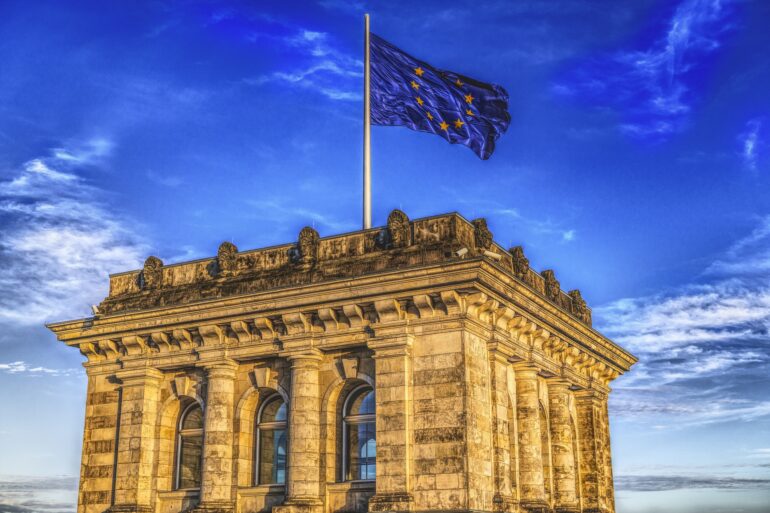TL;DR:
- EU committees of lawmakers have reached a consensus on stricter draft regulations for AI.
- The forthcoming AI Act from the European Union will be the first comprehensive legislation to regulate artificial intelligence tools.
- The Act will cover facial recognition, biometric surveillance, and other AI applications.
- After two years of negotiations, the Act will move to the next stage, where lawmakers will finalize the specifics with the European Commission and member states.
- The demand for decisive action on AI and its societal impact has grown, prompting the need for a robust regulatory framework.
- The proposed regulations include a classification system for AI tools based on risk levels.
- MEPs voted to ban facial recognition in public spaces and predictive policing tools and to introduce transparency measures for generative AI applications like OpenAI’s ChatGPT.
- This vote marks a significant milestone in AI regulation, emphasizing the importance of safeguarding fundamental rights.
- The goal is to ensure AI serves people, society, and the environment, rather than the other way around.
Main AI News:
European lawmakers took a significant step towards the implementation of new rules that will govern artificial intelligence tools, including the likes of ChatGPT, following a crucial vote on Thursday. The forthcoming AI Act from the European Union is poised to become the first comprehensive legislation that will regulate this transformative technology, encompassing various aspects such as facial recognition, biometric surveillance, and other AI applications.
After a two-year period of intense negotiations, the Act is now expected to progress to the next stage of the process, where lawmakers will collaborate with the European Commission and individual member states to finalize the law’s specifics. Speaking ahead of the vote, Dragos Tudorache, one of the parliamentarians responsible for drafting the legislation, emphasized the delicate nature of the agreement, stating that it offers something valuable to all parties involved in the negotiations.
The demand for decisive action on artificial intelligence and its impact on society has become increasingly apparent. As Tudorache noted, citizens are acutely aware of the significance of this issue, evident from media coverage over the past few months. Consequently, the European Union recognizes the need to address these concerns and establish a robust regulatory framework to govern the development and deployment of AI technologies.
The proposed regulations outline a classification system for AI tools based on their perceived level of risk, ranging from low to unacceptable. Governments and companies utilizing these tools will have varying obligations, depending on the level of risk associated with the AI application.
During the morning vote, Members of the European Parliament (MEPs) agreed to prohibit the use of facial recognition in public spaces and predictive policing tools and to introduce enhanced transparency measures for generative AI applications such as OpenAI’s ChatGPT. This vote marks a significant milestone in AI regulation and sends a clear message that safeguarding fundamental rights is of utmost importance. As Greens MEP Kim van Sparrentak expressed, AI should be harnessed to serve people, society, and the environment rather than the other way around.
Conlcusion:
The consensus reached by EU lawmakers on stricter draft regulations for AI signifies a major development in the market. The forthcoming AI Act is set to be the first comprehensive legislation governing AI tools, covering vital aspects such as facial recognition and biometric surveillance. This regulatory framework will provide clarity and guidance to businesses operating in the AI sector, ensuring responsible and ethical use of these technologies.
The ban on facial recognition in public spaces and the introduction of transparency measures for generative AI applications highlight the increasing emphasis on safeguarding fundamental rights. This development will foster trust among consumers and drive the adoption of AI technologies that prioritize the well-being of individuals and society. As the market adapts to these regulations, businesses will need to align their AI strategies with the new requirements to maintain compliance and gain a competitive edge in the evolving landscape of AI-driven innovations.

